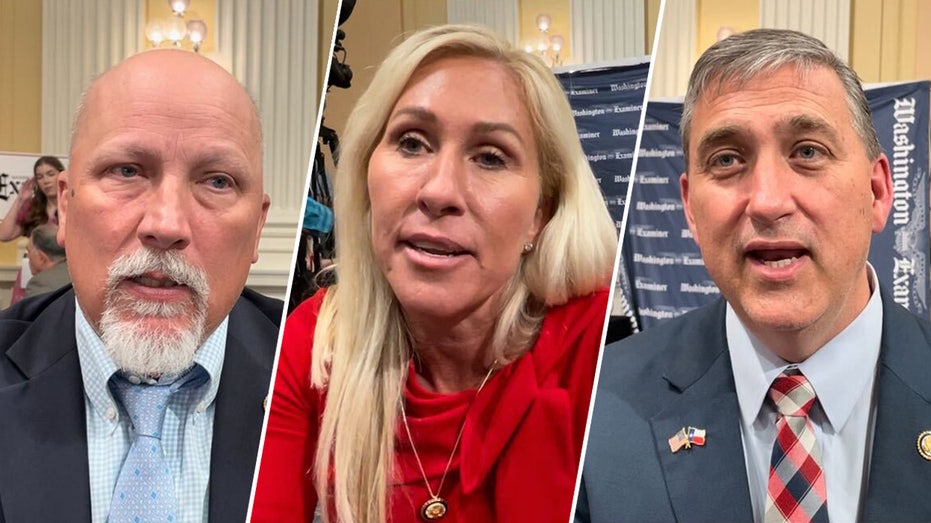In a significant political development, House Republicans are grappling with internal tensions as a proposal to increase taxes on millionaires gains traction. This proposal, aimed at addressing income inequality and enhancing state revenues, has revealed stark divides within the party, leading some members to express a staunch “hard no” against the tax hike.
The proposal comes amid ongoing discussions in Congress about how to balance the federal budget, manage rising debt levels, and fund crucial social services in a time of economic uncertainty. Supporters of the millionaire tax argue that the wealthiest Americans should contribute a fairer share of their income to support the infrastructure and social programs that benefit all citizens, especially in the wake of a global pandemic that has exacerbated income disparities.
Critics, however, argue that increasing taxes on wealthy individuals would stifle economic growth, deter investment, and ultimately hurt the job market. Wealthy individuals often have the resources to move their capital elsewhere, creating concerns about capital flight and the potential impact on the overall economy.
This contentious debate has pitted various factions of the Republican Party against each other. Some members, particularly those representing more moderate districts, have shown a willingness to consider the proposal, believing that it could lead to a more equitable tax structure and help fund essential services. On the other hand, staunch conservatives are firmly opposed, viewing any tax increase, regardless of the beneficiary, as a betrayal of the party’s core principles.
One of the most notable figures opposing the millionaire tax proposal is House Minority Leader Kevin McCarthy, who stated, “We need to be focusing on cutting taxes and reducing the burden on American families, not increasing taxes on successful entrepreneurs and job creators.” This rhetoric highlights a broader Republican strategy that emphasizes tax cuts as a means of economic stimulation.
Complicating the issue further is the diversity within Republican ranks; more conservative members argue that the party should remain steadfast in its traditional focus on tax cuts and limited government intervention. This has created a rift where some lawmakers fear that any sign of compromise could alienate their base, while others are more amenable to adapting their views based on the shifting political landscape and public sentiment.
A recent poll indicated that there is significant public support for increasing taxes on the wealthiest Americans. Around 65% of respondents favored a tax increase on millionaires to fund social services, pointing to heightened awareness around issues of wealth inequality following the COVID-19 pandemic. This stark divide between public opinion and the positions held by some Republican lawmakers is presenting a significant political challenge.
As the debate continues, the House is likely to see intense lobbying from both sides of the issue. Advocacy groups pushing for the millionaire tax are ramping up efforts to influence public opinion and apply pressure on legislators who may be undecided. On the other side, traditional Republican donor networks are also mobilizing to ensure that any dissenters from the party line face political repercussions.
In response to the developing situation, some Republican lawmakers are urging their colleagues to seek common ground rather than adhere to rigid positions. A group of moderate Republicans has begun discussions around potential tax reform that would focus on closing loopholes and eliminating inefficiencies in the current tax code rather than implementing punitive measures against the wealthy.
Furthermore, with the 2024 elections on the horizon, many Republican representatives are considering how their stances on the proposed tax hike will affect their electoral prospects. The timing of this proposal has led to fears among some members that if they back the tax increase, they could face a backlash from their constituents and possibly risk their political careers.
The debate has also highlighted a broader philosophical split within the party. On one side, there are those who advocate for a free-market approach where minimal government interference and personal responsibility reign supreme. On the other, a growing faction believes that it’s imperative to address systemic inequities through progressive taxation strategies aimed at funding social safety nets.
Don’t underestimate the influence of public sentiment in this debate. As more households across the country feel the squeezing pressure of inflation and stagnant wages, calls for wealth redistribution through taxation are becoming increasingly persuasive. This shift in attitudes could prove pivotal in shaping future policy decisions, especially for GOP candidates looking to maintain or regain influence.
As the discourse surrounding the millionaire tax continues to evolve, it remains uncertain how House Republicans will eventually align their strategies. Can the party effectively navigate its internal divisions, or will this divide deepen leading into crucial electoral contests? The outcome of this debate could have lasting implications not only for the Republican Party but also for American tax policy as a whole.
Regardless of the eventual resolution to the millionaire tax proposal, it’s evident that the tension within the House among Republicans reflects a larger national conversation about economic disparity, fiscal responsibility, and the role of government in addressing these challenges. As legislators continue to debate the merits and drawbacks of such a tax hike, the American public will be watching closely, understanding how these decisions will affect their own financial realities in the long term.
This ongoing discussion is a critical indicator of where the Republican Party may be headed, and it poses essential questions about the future of taxation and economic policy in an era defined by stark contrasts in wealth and opportunity. How this internal conflict unfolds will undoubtedly shape American politics for years to come.
































